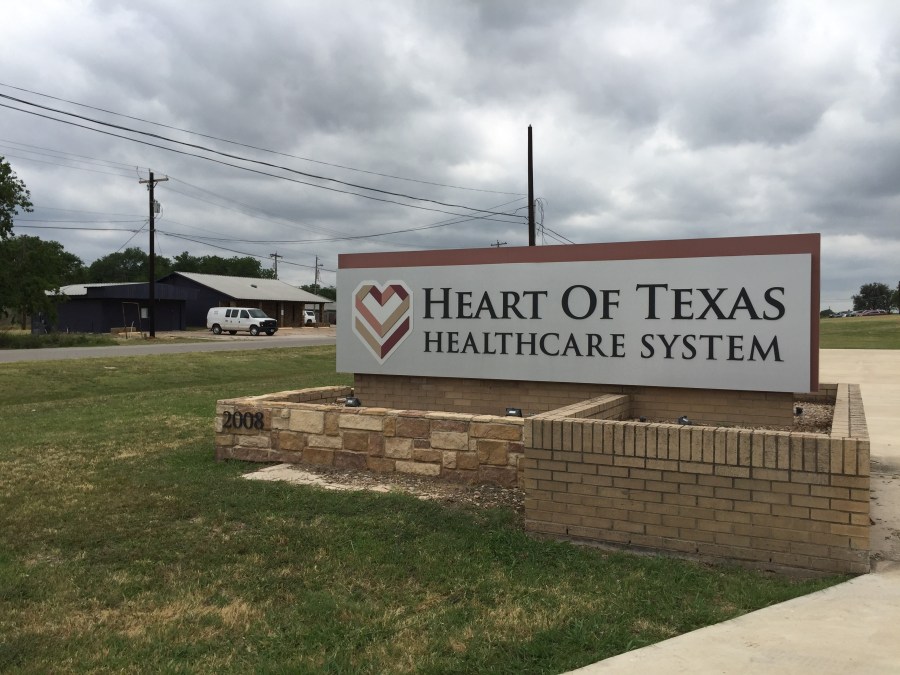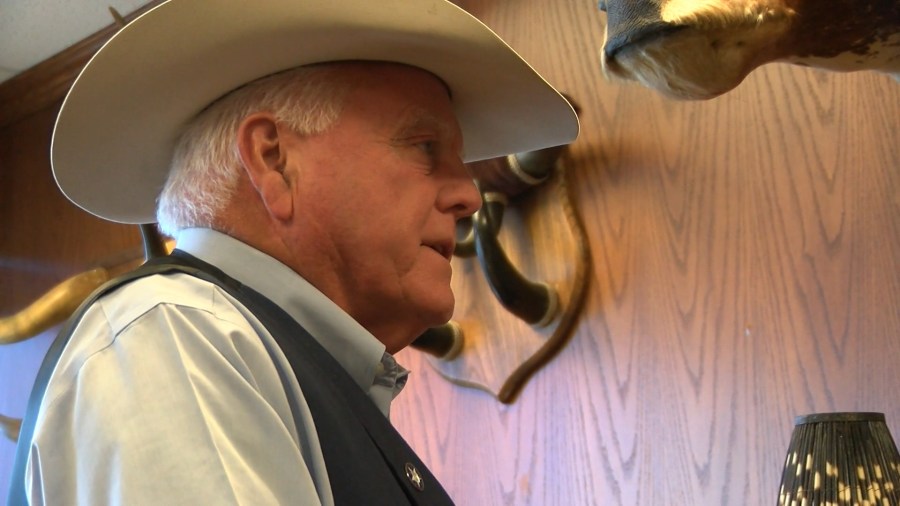AUSTIN (KXAN) – Texas’ rural hospitals are being financially squeezed by the COVID-19 pandemic.
Though major cash infusions from the state and federal governments are keeping many afloat, some worry healthcare center closures could be the first falling domino leading to the decimation of rural towns.
“A lot of times the rural hospitals are the largest employers in the community, and so if a hospital shuts down in a community, it can significantly impact the local economy,” said Chris Strickland, CEO of Haskell Memorial Hospital. “You can see towns dry up and go away just for a simple hospital closure.”
The plight of rural hospitals has spurred state leaders, including Agriculture Commissioner Sid Miller and Gov. Greg Abbott to step in and push for financial support. However, it isn’t clear how much money has gone to individual hospitals so far.
Strickland said his hospital, and many others, have seen revenues slump due to COVID-19, with fewer patients and elective surgeries being performed.

Miller’s Agriculture Department has the State Office of Rural Health under its umbrella of programs.
SORH has several programs that assist rural health providers by providing information and referrals, help with medical license and assistance with grants. Miller says 60 of the state’s rural hospitals have less than 30 days cash on hand, and the parent company of one hospital in Alpine is declaring bankruptcy.
“Right now, we need cash to keep the doors open. We can’t fight it, if you don’t exist,” Miller said in an interview with KXAN on Friday. “We’ve got to have the hospitals up and running. We can’t shutter them. When you shutter a hospital, then all the industry in that small rural community leaves. When the industry leaves, the school closes.”
Request for funds
In March, Miller requested $40 million from Abbott to distribute to 163 rural hospitals, according to a letter obtained by KXAN. However, Miller says he has not heard back on that request, and it does not appear that money has been distributed directly to rural hospitals.
Speaking with KVEO News in Brownsville on Wednesday, Abbott said that $40 million was “authorized” last month. Abbott’s office said they were working with the Texas Health and Human Services Commission to provide funding from “federal partners” to rural hospitals.
“Rural hospitals have already – or will soon – receive at least $174.1 million,” said Abbott’s director of communications John Wittman in an email.
Texas HHSC said funding for rural hospitals was being distributed from the U.S. Department of Health and Human Services, and a total of 393 rural providers would be allocated over $634 million, according to HHSC Press Officer Elliott Sprehe.
Sprehe said the money would go to critical access hospitals, rural health clinics and community health centers.
KXAN has requested a detailed breakdown of funding for rural hospitals, and that request is pending.
Strickland said his hospital in Haskell, which is about 55 miles north of Abilene, has received significant payments from the state and federal government totaling “a couple million dollars.”
He could not provide an exact amount.
Strickland said his hospital is not in danger of shutting down, in part because of money from the Paycheck Protection Program — a loan program run through the U.S. Small Business Administration to support payrolls during the pandemic.
He said his hospital has received state and federal grants and expects to get funding through a federal stimulus.
“Without this stimulus money and without the Paycheck Protection Program, my fear is that this COVID thing was going to be the death knell for several hospitals throughout the state, throughout the nation, especially when it comes to rural health care,” Strickland said. “It’s some significant payments that are going to help keep hospitals alive and help keep us operational until we can start making it on our own again. And without these payments, there’s no telling how many hospitals, especially rural hospitals, that we’re going to lose, not only in the state of Texas but the entire nation.”
State funding unclear
Miller said he has not gotten a clear answer on the status of his $40 million rural hospital funding request. That money would have provided about $250,000 for each of the state’s 163 rural hospitals, according to his letter.

Miller previously pushed, and secured, $11 million to assist the rural hospitals.
Miller said he reads the state’s daily updates on the COVID-19 situation, and participates in the State Operations Center, which provides detailed lists of government grants. He said he hasn’t seen evidence of money going directly to rural hospitals.
“I don’t want to just dispute the governor, but I can’t find where anything went to a rural hospital, in the grants that have been issued so far. HHSC did have some grant money that went to mental health care across the state, which possibly could be some in rural areas, but nothing directly to the hospitals that I can find,” Miller said. “I still haven’t got a response back to the governor’s office about our request. I hope they have sent it out through a different agency, that would be great. According to the hospital administrators, they haven’t seen it. So, it’s kind of a mystery, as to where we are.”
Wittman said the Governor’s Office had reached out to TDA, after getting Miller’s $40 million request, and said it would be working through HHSC on the issue.
Wittman said Abbott’s office “welcomed TDA to work with HHSC moving forward in order to coordinate efforts to provide the best results for state rural hospitals.”
HHSC did not provide specific amounts that would be distributed to individual hospitals from the overall $634 million. The federal disbursement is part of a $10 billion allocation for rural health care that will fund nearly 8,000 providers across nationwide.
On Friday afternoon at 5 p.m. Miller’s press office released a statement in which Miller thanked President Donald Trump for “heeding my call” on the federal funding. He said each rural hospital would receive at least $1 million, with more funding to be determined by a formula. Miller’s news release referenced his interview with 60 Minutes, which aired May 3, saying the segment “clarion call” to help get rural hospitals funding. According to U.S. Health and Human Services Department, the federal money authorization was announced April 22.
















